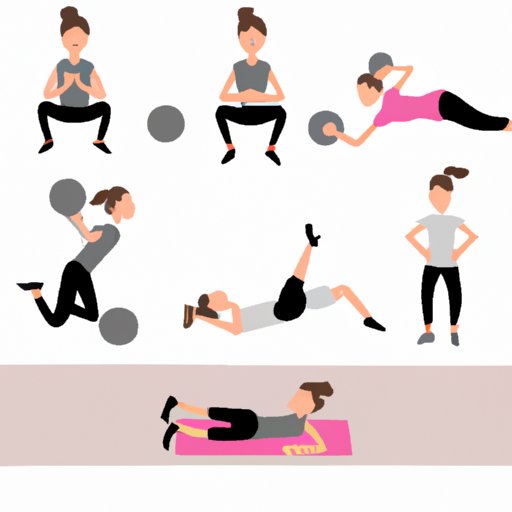Introduction
Exercise is any form of physical activity that helps to maintain or improve overall health and fitness. It can include activities like running, swimming, cycling, yoga, weight training, and more. Exercise has long been known to have numerous physical benefits, such as improving heart health, reducing the risk of certain diseases, and helping with weight management. But did you know that exercise can also help to improve mood and mental health? In this article, we will explore how regular physical activity can lead to improved mental well-being and a better overall mood.
Physiological Effects of Exercise
One of the primary ways that exercise can help to improve mood is through the release of certain hormones in the body. During physical activity, the body releases endorphins, which are hormones that interact with opioid receptors in the brain to reduce pain and create a feeling of euphoria. Endorphins have been linked to improved mood, increased energy levels, and reduced stress. Additionally, physical activity can also reduce cortisol levels, which is a hormone associated with stress and anxiety.

Research Linking Physical Activity and Mental Health
Several studies have shown a correlation between regular physical activity and improved mental health. According to a study published in the journal Psychoneuroendocrinology, regular exercise was found to be an effective way to reduce symptoms of depression and anxiety. Another study published in the Journal of Psychiatric Research found that participants who engaged in regular physical activity reported improved moods and lower levels of stress and anxiety. These studies demonstrate the potential of exercise to improve overall mental health and mood.
Different Types of Exercise and Their Impact on Mood
There are many different types of exercises that can help to improve mood. Aerobic exercises like running, swimming, and cycling can all help to boost endorphin levels and reduce stress. Resistance training, such as weightlifting and strength training, can help to increase muscle mass and improve self-esteem. Yoga and mindfulness practices are also great for reducing stress and improving focus and clarity. All of these different types of exercise can help to improve mood and mental health.
Real-Life Stories of People Who Experienced Positive Changes in Mood from Exercising
There are countless stories of people who have experienced improved moods after incorporating regular exercise into their lives. For example, one woman shared her story of how running helped her to cope with depression. She said, “Running gave me a sense of accomplishment and control over my life. It made me feel like I could do anything.” Another man shared his experience of how yoga helped him to manage his anxiety. He said, “Yoga has helped me to stay grounded and focused. It has given me the tools to cope with my anxiety and to be more mindful of my thoughts and feelings.” These real-life stories demonstrate the power of exercise to improve mood and mental health.

Easy Tips for Incorporating Exercise into Your Daily Routine
Starting an exercise routine can seem daunting, but it doesn’t have to be. Here are some easy tips for incorporating physical activity into your daily life: set short-term goals, such as going for a walk every day; find activities that you enjoy, such as dancing or playing sports; and make exercise part of your routine by scheduling it into your day, just like you would any other appointment.
Conclusion
In conclusion, exercise can be an effective way to improve mood and mental health. Regular physical activity has been linked to reduced stress and anxiety levels, improved focus and clarity, and even elevated endorphin levels. Whether it’s aerobic exercise, resistance training, yoga, or another activity, there are many different types of exercise that can contribute to improved mental health.
(Note: Is this article not meeting your expectations? Do you have knowledge or insights to share? Unlock new opportunities and expand your reach by joining our authors team. Click Registration to join us and share your expertise with our readers.)
